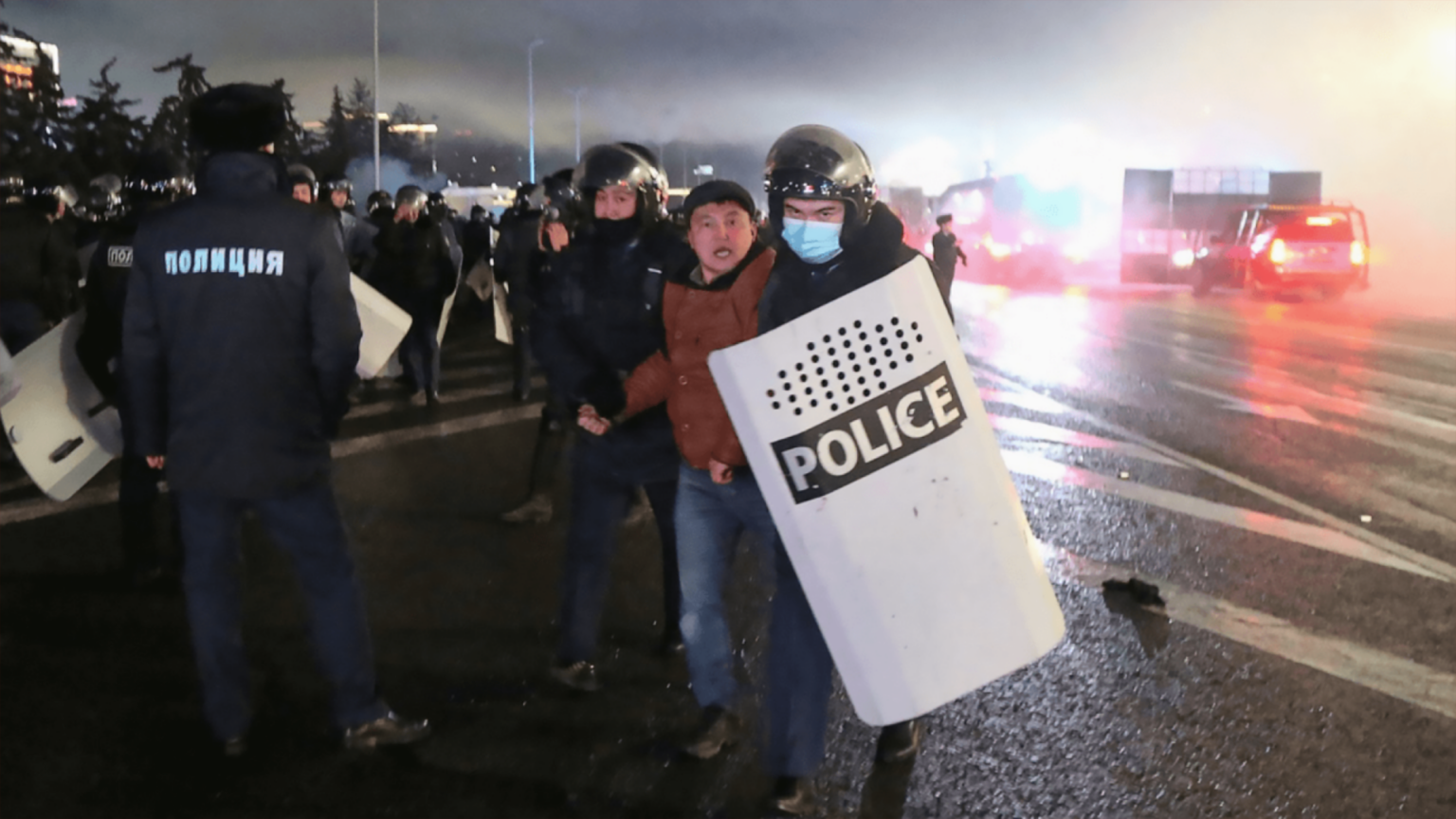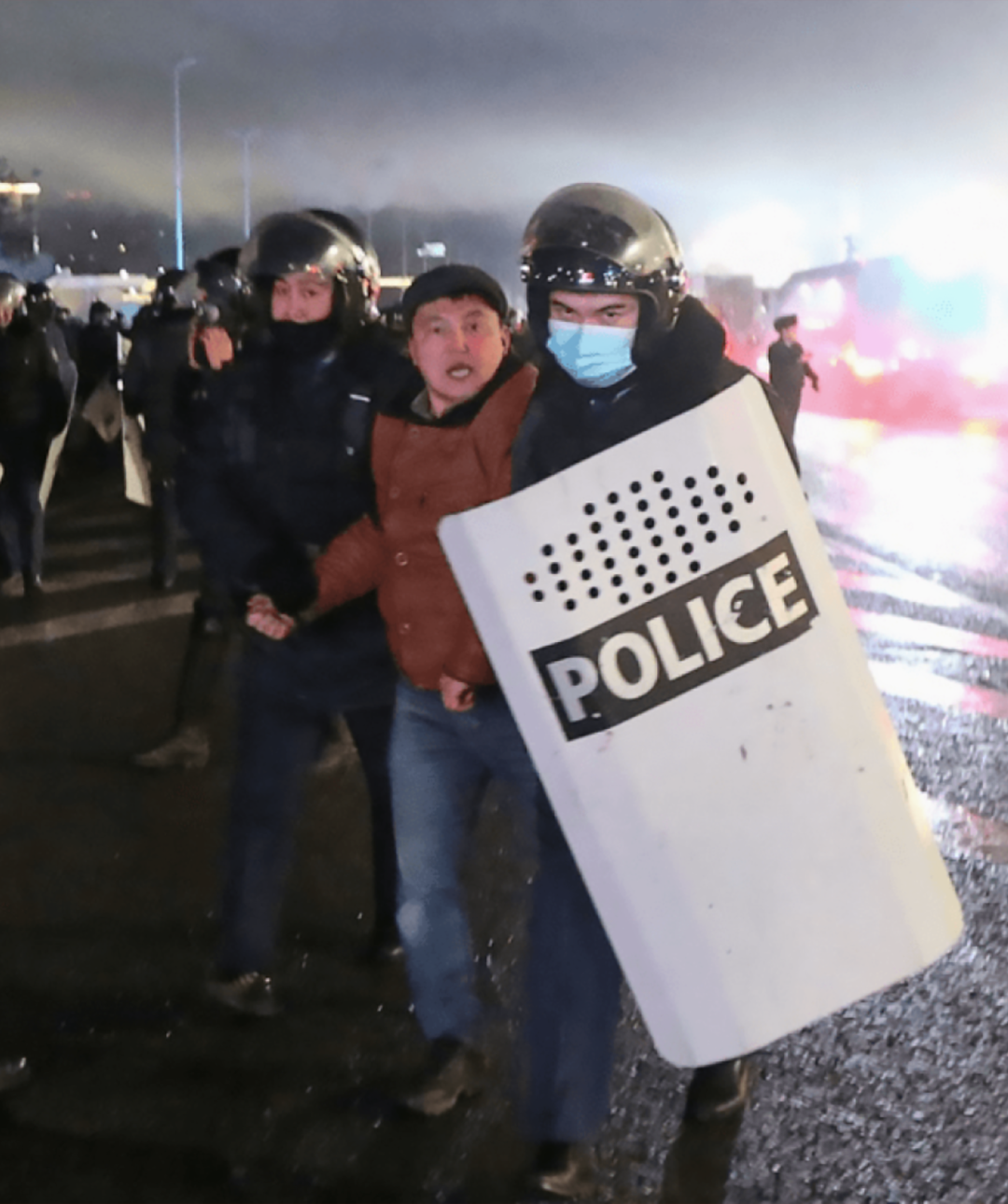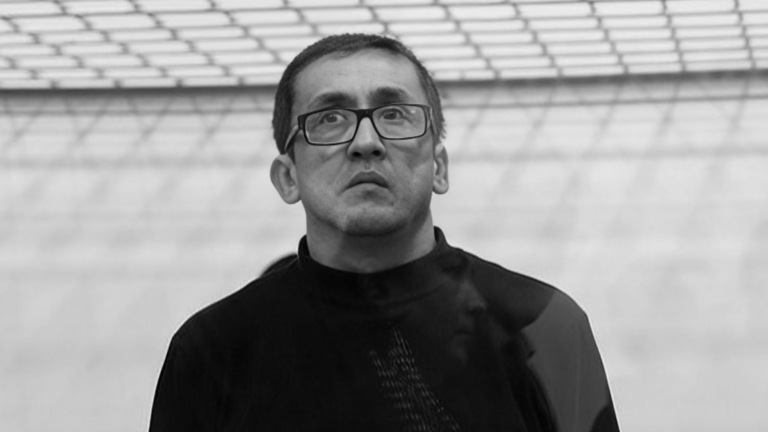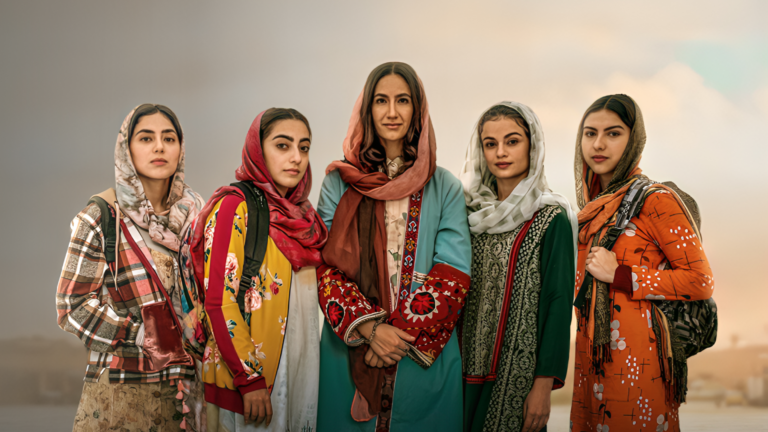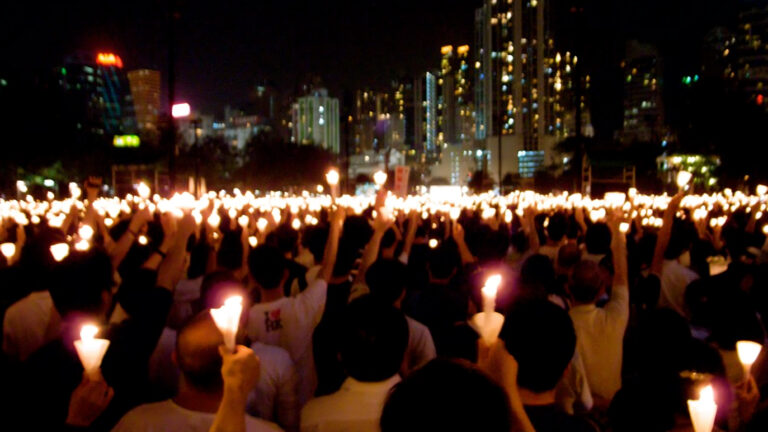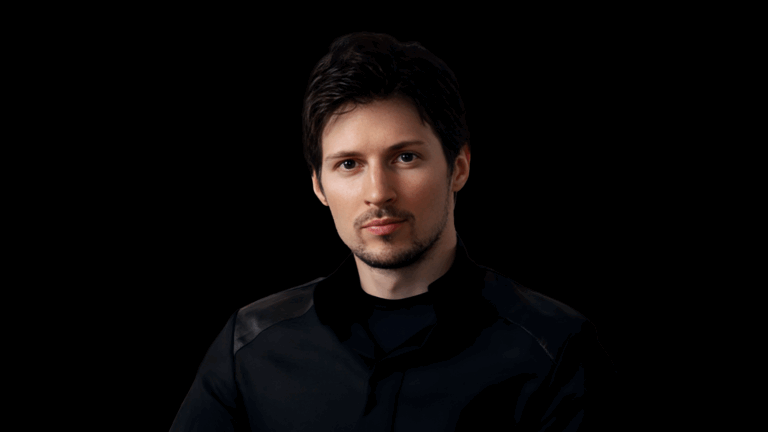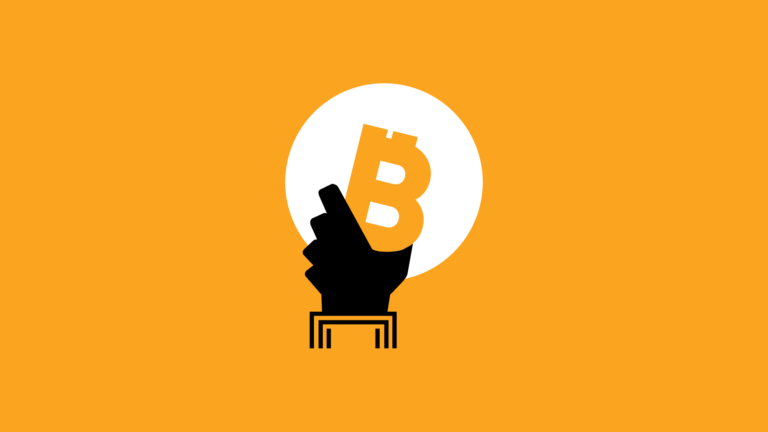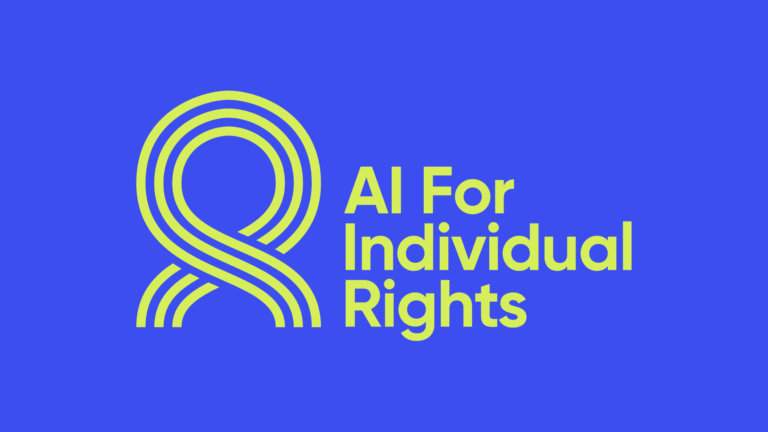NEW YORK (January 6, 2022) — The Human Rights Foundation (HRF) strongly condemns all violence against demonstrators in the wake of protests against the rise in price of consumer goods that have spread and escalated across Kazakhstan. The government of Kazakhstan must refrain from the use of violence against peaceful protesters and must hold free and fair elections that comply with international standards.
Over the last few days, tens of thousands of people have taken to the streets in multiple cities across the country to express their frustration with a government that has failed to address unemployment, a stagnant economy, and widespread corruption. The regime has responded to protests by shutting down internet services, declaring a state of emergency, deploying the military, and inviting the Moscow-backed CSTO military alliance to intervene. An initial, unreliable government report states that dozens of protesters have been killed, including at least 12 security officers, and hundreds have been injured. As more information is made available, the numbers are likely to be higher.
“Kazakhstan is ruled by a fully authoritarian regime, where protests of any kind are exceedingly rare. Its regime harshly cracks down on civil society organizations, freedom of expression, and opposition to its rule,” said HRF Senior Policy Officer Malaak Jamal. “The transition of power from Nursultan Nazarbayev to Kassym-Jomart Tokayev has changed nothing for the people in Kazakhstan. To the contrary, Kazakhstan remains a country in which human rights abuses continue to persist.”
Until 2019, Kazakhstan was ruled by Nursultan Nazarbayev, who maintained a repressive state apparatus and encouraged a cult of personality to sustain his regime. Although he formally resigned as president in 2019, he has maintained power as the Chairman of the Security Council, while the new president, Kassym-Jomart Tokayev, is a longtime friend and supporter. Nazarbayev continues to hold the title “Leader of the Nation,” and Tokayev renamed the capital, previously known as Astana, to Nur-Sultan in Nazarbayev’s honor.
Under Nazarbayev’s rule, in 2011, a strike by oil rig workers in the city of Zhanaozen incited a massacre by government security forces, leading to the deaths of at least 15 people and hundreds more wounded. The late theater director Bolat Atabayev publicly condemned the government’s use of violence against protesters, but was soon imprisoned for “inciting social discord.”
HRF has been active in exposing the truth about the Nazarbayev regime. At the 2012 San Francisco Freedom Forum, Atabayev spoke about the human rights crisis in Kazakhstan, and that same year, at the 2012 Oslo Freedom Forum, Alexey Tikhonov, the Moscow correspondent for Kazakhstan’s Respublika newspaper, spoke about the massacre, and how the Nazarbayev regime was built on violence and corruption.
In 2013, HRF published a report investigating the state of freedom of expression in Kazakhstan. The report found that the government of Kazakhstan “continues to fail…to protect freedom of expression,” especially in the wake of the Zhanaozen massacre. Although Reporters Without Borders has noted that since 2019 the government of Kazakhstan has somewhat relaxed its stranglehold on freedom of expression, over 400 journalists have been imprisoned by Kazakhstan’s regime.
HRF has also exposed how the Nazarbayev regime has engaged in reputation laundering or whitewashing, a practice by many dictatorships, which entails using glamorous events and celebrity star power to cover up the crimes of their regimes. In 2013, American musician Kanye West performed at the wedding of Nazarbayev’s grandson, giving legitimacy to a regime that has kidnapped opponents and brutally crushed dissent. In 2017, American actor Nicholas Cage traveled to Kazakhstan for the Eurasia International Film Festival, where he gave a glowing review of the dictatorship. His praise gave the government positive visibility internationally, and allowed human rights abuses in Kazakhstan to slip further away from the public spotlight. HRF wrote to both celebrities, asking them to condemn the dictatorship which paid for their visits, and donate their proceeds to local non-profit organizations. Although both celebrities neglected to respond, HRF’s campaigns were covered by major media outlets, including The Guardian, The Wall Street Journal, Foreign Policy, and Rolling Stone, among other outlets.
Now, more than ever, it is crucial to focus the world’s attention on the events unfolding in Kazakhstan. In its mission to promote and protect human rights in countries where it is most at risk, HRF will continue to monitor the situation on the ground in Kazakhstan.
The Human Rights Foundation (HRF) is a nonpartisan nonprofit organization that promotes and protects human rights globally, with a focus on closed societies. For interview requests of further comment, please email [email protected].


